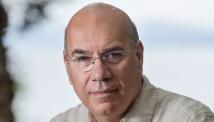SEATTLE (AP) — Fueled by its deafening home crowd, the Seattle Seahawks locked up their spot in the postseason Sunday night.
They also reinforced the notion no one in the NFC wants to see them when the playoffs begin, even if they are a wild card.
Russell Wilson threw a career high four touchdown passes to move into second place for most TD passes by a rookie. Marshawn Lynch scored two first-quarter TDs, and the Seahawks blew out the San Francisco 49ers 42-13.
Richard Sherman returned a blocked field goal 90 yards for another touchdown as the Seahawks (10-5) jumped to a 21-0 lead. That only added to an already hyped crowd on a typically cold and rainy December night, with noise echoing off the walls and overhanging roof of CenturyLink Field that might have been heard all the way across Puget Sound.
No one cared about the cold rain. Not with the performance they were seeing on the field. And not with a ticket to the postseason guaranteed thanks to Seattle's first 10-win season since 2007.
Most likely Seattle will be the No. 5 seed in the NFC. There remains a slight chance of winning the NFC West if the Seahawks beat St. Louis in the season finale and Arizona can upset the 49ers in San Francisco.
The Seahawks, 7-0 at home, delayed San Francisco (10-4-1) from celebrating a division title on Seattle's turf. They turned Jim Harbaugh's 49th birthday into a miserable, wet evening.
Whether home or road, the Seahawks are a scary postseason opponent with the way they are playing.
Seattle was the first team since 1950 to score at least 50 points in consecutive weeks thanks to its 58-0 win over Arizona and 50-17 victory against Buffalo. It seemed inconceivable the scoring binge could continue against San Francisco, the best scoring defense in the NFL.
But it did.
Seattle has outscored its last three opponents 150-30.
The 42 points were the most allowed since Harbaugh took over the 49ers, and the most San Francisco yielded since 45 to Atlanta in 2009. It was the perfect way for Pete Carroll to snap a three-game losing streak against his rival.
Lynch finished with 111 yards on 26 carries, his third straight game against the 49ers topping 100 yards. Wilson wasn't asked to do much — other than throw touchdown passes.
He hit Lynch on a 9-yard TD in the first quarter, Anthony McCoy for a 6-yarder late in the first half, and Doug Baldwin on 4 and 6 yard TDs in the second half.
Wilson now has 25 TD passes, one behind Peyton Manning's NFL rookie record of 26. He finished 15 of 21 for 171 yards. His only incompletion in the first half was a deflected pass that Patrick Willis intercepted.
Wilson led Seattle on scoring drives of 9, 12, 13 and 15 plays. He was never threatened by Aldon Smith, who remained stuck on 19 1-2 sacks for the season thanks to the play of Seattle left tackle Russell Okung.
The Seahawks were 11 of 13 on third-down conversions. And Wilson was the clear winner in the matchup of young quarterbacks.
San Francisco's Colin Kaepernick had already proven himself capable of winning on the road with victories in New Orleans and last week in New England. But Seattle is a different beast, widely regarded by players as the loudest venue in the NFL. His inexperience playing in such an environment showed. He was flustered and disorganized at the line of scrimmage, letting the noise from Seattle's fans affect him.
Kaepernick's forgettable night was capped when Sherman stepped in front of his pass for Randy Moss at the back of the end zone on the first play of the fourth quarter for his seventh interception of the season.
Kaepernick was 19 of 36 for 244 yards with an 18-yard TD pass to Delanie Walker with 1:40 left. Frank Gore had just 28 yards on six carries after rushing for a season-high 131 when the teams met in Week 7.
San Francisco played without defensive tackle Justin Smith due to an elbow injury that ended a streak of 185 straight starts. The 49ers lost tight end Vernon Davis in the first quarter with a concussion suffered when he was knocked off his feet on a huge hit along the sideline from Seattle safety Kam Chancellor that looked legal but drew a penalty for hitting a defenseless receiver.
The injuries kept coming when starting cornerback Tarell Brown was on the ground clutching his right knee early in the second quarter and had to be helped off the field. Brown returned in the second half.
And wide receiver Mario Manningham went down with a left leg injury early in the third quarter when he was tackled low by Leroy Hill and fumbled.
___
Online: http://pro32.ap.org/poll and http://twitter.com/AP_NFL



